Discover Philosophy at the Movies
Philosophy at the Movies

Philosophy at the Movies
Author: Stockdale Center - Shaun Baker, PhD.
Subscribed: 50Played: 471Subscribe
Share
© 2025 Stockdale Center - Shaun Baker, PhD.
Description
Have you ever thought about the philosophical concepts inherent in contemporary movies? Join us for intriguing discussions linking film and philosophy.
122 Episodes
Reverse
How does this 1972 film, based on the Kurt Vonnegut novel, play with the notion of involuntary and random time travel, and force us to consider what impact such a life would have on one’s attitudes toward pain, suffering and tragedy? What do the Tralfamadorians think about death, and how does Billy Pilgrim’s attitude mirror it after he has been abducted and held by this alien race? How does the film represent time as a fourth dimension, on par with the three spatial dimensions, all parts of time, all periods in history, already existing? How does this film compare to the film Arrival, which also toys with this view of space/time? How does the novel and film reflect Vonnegut’s own experiences as a POW during the bombing of Dresden Germany in the last months of WWII? How does it reflect attitudes toward the then contemporaneous Vietnam war? Why does Vonnegut claim Dresden had been declared an open city when it was not so declared, and why does he believe that hundreds of thousands were killed during those raids when ten to twenty thousand was the actual number?
What does this 1973 made for TV docudrama tell us about the Cuban Missile Crisis and the events that led to Soviet introduction of intermediate range nuclear armed ballistic missiles into that island nation? What were the justifications cited by Khrushchev? Why is Cuban leadership not portrayed in the film? How did the history of Cuban U.S. relations lead to the crisis? How does the film use ambassador Adlai Stevenson’s presentation of this case to show Kennedy’s style of decision making? What role did the failed Bay of Pigs invasion play in bringing about the crisis? What role did attempted assassinations of Castro play? How does this film portray the Kennedy brothers, John and Robert? Did John Kennedy’s desire to appear tough, in light of his treatment by Khrushchev at earlier summit meetings, motivate him to carry out the invasion? How does the film show Kennedy’s team using a strategy of ‘gradual escalation’ to deal with the crisis? What impact did its success in this case have upon Johnson Administration strategy in Vietnam? What does the film teach us about the unique and awesome responsibilities of the office of President of the United States?
How does this 2017 film explore grief, and how does it make use of the ghost, C’s, being almost unmoored in time to express grief? Why is the ghost tied tightly to the house and its location, even as he jumps around in time? Who or what is the neighboring house’s ghost waiting for? Why does the film use an aspect ratio that is reminiscent of home movies or early silent film? How does the film’s implicit metaphysics contrast with and contest the nihilistic or absurdist message of the ‘hipster’ man at the party, who argues that attempts at leaving legacies are ultimately pointless, due to the fate of planet Earth, and ultimately, the universe as a whole? What was the content of the note that C’s wife, M, leaves tucked away in the house as she moves out, that seems to allow C to move on? Does the fact that, before he died, he wrote a song expressing his concern that M will forget about him show that he, at some level, knew he would die in the near term? Does her note address this concern of his?
What does this 2023 documentary about a man who takes part in a Japanese reality television show, Susunu! Denpa Shōnen. in the late 1990’s, show us about the morality of such shows? How does the show work to isolate the man from human contact, and why? Why is he stripped of his clothes and confined to a room for over a year? How do the live audiences respond as they watch him? How does he respond? What parallel shows exist in American television, and why are these sorts of shows popular? How does the scenario resemble the fictional world of the film The Truman Show? How does the man respond when released? How does he tap into his experience when it comes to aiding his home town of Fukushima and the nation of Nepal after they suffer disasters? Would he have undertaken these projects if he had not been subject to the degrading experience on Susunu! Denpa Shōnen? Why is it that older generations typically are repulsed by reality TV and similar social media sensations, while younger people are not? Is there a process of maturation that accounts for this, or is it merely cultural? How has the reality TV phenomenon, and commercial sponsorship, morphed and decentralized with the advent of social media? Is this a good or bad thing?
What does this 2009 comedy tell us about lying? Is the world presented, a world where lying does not exist until the main character, Mark Bellison, ‘invents’ it, a world that is worth living in? Why? What assumptions are made, in this film, about how people would treat each other in a world where lying does not exist? How does the premise of the film reflect thought experiments that Immanuel Kant relies upon when explaining his notion of ‘the categorical imperative’? How does the film treat Mark’s invention of religion, and claims of an afterlife? Does it reflect producer/writer Ricky Gervais’s cynicism with regard to religion, or does he portray his sympathy with its conciliatory power, through the story of Mark and his mother at her death-bed? Does the film also ‘argue’ for the conciliatory power of lying, more generally? How does he deal with white lies? What is the connection between lying, having capacity for imagination and conceiving of ‘what is not’ (as it is put in the film)? Would science be possible in a world like this?
How does this 2004 film, based on the book of the same title, portray the importance of High School football in the life of the town of Odessa Texas? How does the film contrast with the book, and what choices were made as to what to emphasize in the film, and why were those choices made? Why does the film downplay racial elements? How does the case of half-back Boobie Miles illustrate the tragedy of ‘placing all of one’s eggs in one basket’? Why do Boobie and his uncle downplay the nature of his knee injury? How do the recruiting practices of major universities that are courting Miles illustrate Kantian ethical principles with regard to using people as ‘mere means’ to their ends? How do the town influencers mirror this behavior with regard to balancing football’s power to drive Civic pride, and the academic well-being of student athletes? Does toleration of criminal behavior in the Carter football team illustrate this same principle? How have things evolved with regard to college players licensing of their likenesses? Should colleges treat their football teams more in line with practices in minor leagues of other sports, sponsoring teams, claiming naming rights, and providing salaries for players? We see this sort of arrangement in minor league hockey and basketball. Such a practice would no longer require players on sponsored teams to be students. Would this be a better arrangement, all things considered?
What does this 1980 film, based upon the true story of a series of courts-martial carried out toward the end of the Boer War at the turn of the 20th Century, tell us about the morality of guerilla war, and responses to such tactics? What defense is presented for the actions of the members of the Bushveld Carbineers in placing civilians at the head of trains, and for their summary execution of POWs? Does the film accurately portray the courts-martial as being carried out for primarily political reasons? Did the overall commander of British forces, Kitchener, actually order POWs shot, as the defense claims? How does the case resemble similar cases during WW II and the Vietnam War? Why has there been a tendency in Australia to excuse or Lionize Morant? Should he be lionized? What do Australian authors Peter Fitzsimons and Kit Denton now believe?
What does this 2023 tell us about its various characters, and the challenges involved in running the Manhattan Project, not only for Oppenheimer, but General Leslie Groves? How does the film explore the tragic flaws in Oppenheimer and his nemesis, Lewis Strauss? Why does the film focus more on this aspect of his story and its two main characters’ tragic flaws, rather than the moral questions surrounding the atomic bombs? Why does the film make short work of the Interim Committee meetings, where the decisions were made regarding ‘the gadgets,’ and why does it portray Truman and Stimson as being shallowly political and callous with regard to the decision? Were the concerns with Soviet espionage in the Manhattan Project justified? Were concerns for Oppenheimer’s loyalty justified? What does the success of this film tell us about audience demand for historical films?
What does this 2014 film based upon the Marvel Comic character, Captain America, tell us about counterintelligence and counter-terror surveillance? How does the film cash in on conspiracy theories using the idea that the secret organization, "Hydra," is in control of the major governments of the world, as well as terror organizations? How does the film explore the ethical challenges involved in the balancing of free society and security? How does the film explore the issues surrounding military use of human enhancement? How does the character Bucky illustrate? How does the film portray the ethical issues involved in whistle-blowing? How does the film explore Captain America’s status as a symbol during WWII? Why does he feel guilt for his role as contrasted with that of his sidekick Bucky? Does this superhero’s being portrayed and taking part in major battles during WWII undermine public appreciation for the front-line soldiers who actually fought that war?
What does this 1959 film, based upon the Nevil Shute novel of the same name, tell us about the threat of thermonuclear war, and thought surrounding the notion of doomsday machines? How does the story relate to other films that explore the theme, most notably Stanley Kubrick’s Dr. Strangelove? How does the story develop the idea of the so-called “cobalt bomb”? How do the American naval captain Dwight Towers and his crew cope with his knowledge that his family back in the United States has most likely perished? How do the Australians he lives and works with, respond to the fact that they have limited time before they die? The film portrays mankind as ‘keeping calm and carrying on’ in the face of imminent extinction nine months hence. Is this realistic? How does Shute’s story contrast with other works of post-apocalyptic fiction that portray chaos, the breakdown of social order, and a Hobbesian ‘war of all against all’? Which prediction is closer to being an accurate picture of human nature in such dire circumstances? Why has anxiety about the prospect of major thermonuclear war dissipated in the eight decades since Hiroshima and Nagasaki? Does the fact that no such war has occurred vindicate the thought of such strategic thinkers as Herman Kahn and Edward Teller? Why or why not?
What does this 1984 film, a largely fictional account of the relationship between Mozart and fellow composer Antonio Salieri, tell us about the mix of jealousy disgust and admiration that motivates Salieri as he deals with the profane Mozart? How does the movie portray Salieri’s conflicted love/hate relationship with God, and use the contrast between Mozart’s profane life and personality, and the profound and sublime beauty of his music, to motivate that conflict? How does Salieri’s plot to convince Mozart that his deceased father has commissioned him to compose a Requiem Mass illustrate? Does Salieri ever reconcile himself with his own mediocre talent? Why does this film largely fictionalize the actual relationship between the two men, which did have elements of friction, but was largely professional and, to a degree, collegial? How does this film from the 1980s reflect the hard living by pop stars in the 1960s and 1970s? How does the film comment upon censoriousness with regard to art? How does it comment upon the musical tastes and political concerns of the aristocracy of the day, upon market forces, and reflect similar dynamics in today’s film industry?
How does this 2023 film, which is set in post-WWII Japan, explore the complex emotions of its main character, Koichi, as he deals with survivor’s guilt? How does he compound the shame he has for having been too afraid to undertake his kamikaze mission in the late days of the war? When he and his unit are attacked by Godzilla why does he fail to carry out his part of the counterattack? How does the film portray post war Tokyo, and Koichi’s relationship with survivor Noriko and the orphaned child, Akiko, who she cares for? How does her action to save Koichi’s life during Godzilla’s attack on her home town compound his survivor’s guilt? Do elements of the film amount to a critique of Imperial Japanese attitudes toward life and death? How does the film portray comradery between Koichi and the men he works with as they clear mines, and later, confront the mutated Godzilla? What is symbolized when Koichi flies a modified jet aircraft into Godzilla’s mouth, and ejects before the explosion? What does Sosaku’s provision of an ejection seat symbolize? Is the film a conservative political statement of some sort? Why does the film have the Americans stepping back from confronting Godzilla? Do Godzilla movies symbolize Japanese feelings about the country’s Imperial past, along with the more obvious inspiration derived from Allied use of atomic weapons?
What does this 1976 film, which tells the story of a failing television network, and the psychological breakdown of its primary news anchorman, Howard Beale, tell us about market forces in media and the import of ratings in generating income? Why does the programming director, Dianne Christinsen, have no problem with exploiting Beale’s mental breakdown? What message is sent by the ironic fact that the communist party USA enters into contract with the network and a leftist splinter group, the Ecumenical Liberation Army to create a reality show? Are they not behaving exactly as the capitalists do? How does this film portray the cynicism in the arrangement and mirror the exploitative relationship between the establishment Communist Party and the splinter group, on the one hand, and, on the other hand, the relationship between the CCA holding company, the UBS Network and Howard Beale? Why does CCA head, Arthur Jensen, sell Howard his “corporate cosmology,” yet not seem concerned as the message causes ratings to decline as Beale takes it up on the network’s revamped “news” show? What does the broadcast assassination of Beale tell us about all the parties involved in the conspiracy? How does the Hollywood of the time reflect the cynicism of the 1970s? Does this film’s message and “cosmology” have relevance for today's media environment?
How does this film make use of relativistic time dilation to set up its twist ending, where Taylor discovers he is on Earth in the distant future, after humanity suffered some great catastrophe (probably a world-wide nuclear war)? How much does Dr. Zaius, the ‘defender of the faith,’ know about Taylor, human history on Earth, and why does he feel it necessary to hide what he knows from Ape society? Is he afraid that Ape society will traverse the same dangerous road of technological advancement that led to the end of human civilization? Why is he concerned that humans are inherently a dangerous influence on apes? Did Apes kill one another prior to Taylor’s arrival? Does Zaius take it that the measures taken against the breeding of human beings by Ape society are justifiable because they insure that humanity will not bring on another globally catastrophic event? Why does he move to suppress evidence that Cornelius and Dr. Zira have found of an ancient human civilization? Do Zaius’s action show that the ancient Ape called ‘The Lawgiver’ knew the truth about man’s past? In what ways does the film depart from its source material, the Pierre Boulle novel of the same title? How do both explore ethics of animal experimentation and research via the use of role reversal? How do the three different species of ape (chimpanzee, orangutan and gorilla) function in the society portrayed in the film? In what ways does ape treatment of human beings reflect our treatment of non-human species?
What does this 2024 film, portraying the family life of Auschwitz Commandant Rudolph Hoss, teach us about that family’s ability to compartmentalize the horrors from which they directly benefit, and what lessons does this hold for us? How does the film make use of the aural atmosphere laying over the mundane activities of the family to implicate their guilt? How does the film portray the bravery and heroism of the young girl who, at great risk to herself, plants apples around the work areas for the prisoners that are slave laborers? Does the concluding set of scenes, showing Hoss retching as he descends a darkened flight of stairs alone, and then taking us forward in time to the present-day Auschwitz Birkenau Memorial and Museum, portray Hoss’s recognition, at some level, of the enormity of his crimes, illustrating something reflected upon by Aleksandr Solzhenitsyn as he wrote about his own experiences in the Soviet Gulag system? “the line separating good and evil passes not through states, nor between classes, nor between political parties either -- but right through every human heart -- and through all human hearts. This line shifts. Inside us, it oscillates with the years. And even within hearts overwhelmed by evil, one small bridgehead of good is retained”
How does this 2023 film satirize the market forces in the publishing world? How does the market encourage those indulge and pander to liberal white guilt and traffic in stereotypes concerning black Americans? What, if any significant difference is there between the motivations and justifications Thelonius ‘Monk’ Ellision and fellow author, Sintara Golden, both upper middle-class, well-educated and black, cite to explain why they write stories that indulge these stereotypes? In the end, are they all that different from each other? Is there anything objectionable in their both pandering to liberal sensitivities of the literary and Hollywood markets? How does the film’s late twist or reveal, showing Monk pitching, instead of his novel, My Pafology, his own story, the story of how he came to write the novel under the pseudonym ‘Stagg R. Leigh,’ force the audience to reflect back upon the whole film? Does it raise questions as to how much trust we can put in the film’s portrayal of its main characters, his family? How does the case of Cliff, his brother, illustrate? How does this film comment upon and fit into the history of the portrayal of black Americans in film? How do Hollywood’s recent efforts at inclusion and portrayal of minority groups play out as films are distributed to world markets? What does this reveal about Hollywood’s primary motivations in these efforts?
How does this 2002 film, about an unfolding alien invasion of Earth, use the premise to explore faith, the problem of evil and the differences between fundamental world views with regard to meaningful coincidences? How does the film’s pivotal conversation between Merrill and his brother Graham, a former Reverend who had lost his faith, illustrate these two views, and what events in the film lead Graham from one to the other perspective? How does the film engage the question of whether God can fully eliminate pain and suffering? How does the film tap into and play with pop-cultural themes involving extraterrestrials, media coverage, and pay homage to War of the Worlds?
What does this 1994 epic tell us about the tumultuous period in Chinese history (the civil war of the late 1940s and the first decades of Maoist rule) that is its setting? How does the character arc of its protagonist, Fugui, convey his maturation, his growth as a husband and father, and the effect of four decades of communist rule had upon himself, family and friends? How does the film deal with the “Great Leap Forward,” and the “Cultural Revolution?” How does the fate of the local communist chief Cadre, Nui, reflect the tenuous nature of political or social status in China during the cultural revolution? How does the film contrast the family’s personal relationships with Red Guard, in the person of their loving son-in-law, Wan Erxi and his friends, and the Red Guard running the smelting operations and hospital which ultimately take the lives of Fugui and Jiahzen’s two children, Fengxia and Youqing? How does the film use Fugui’s traditional Chinese shadow-puppetry to comment upon communism's antogonism toward elements of traditional Chinese culture? Why did communist China allow production of this film, its international distribution, but refuse to allow its theatrical release in China? How does Chinese cinema reflect the cyclic and tenuous nature of the CCP's openness to criticism of communist practice?
What does this 1964 black comedy about a nuclear doomsday scenario tell us about the strategic thought surrounding potential nuclear war between the U.S. and the U.S.S.R. during the early years of the 1960s? How does the film play with the concept of a ‘doomsday machine’ as described in the strategic literature of the day? How does the device described in the film reflect an option described by Leo Szilard, a key figure in the development of atomic weapons? How did economist/strategist Thomas Schelling’s work influence Stanley Kubrick’s script? How does the film explore the kind of thinking that backstops the notion of mutually assured destruction? How does the character Dr. Strangelove reflect Kubrick’s desire to combine and satirize aspects of the real-world figures Wernher von Braun and John von Neumann.
What does this 1997 film, set in fascist Italy during WWII, tell us about the gathering threat in Northern Italy for its Jewish citizens, and how the main character, Guido and his family cope with it? Why does the film explore the Holocaust in the guise of one half of the film being a romantic comedy, the latter being a tragic portrayal of life in an extermination camp? How does Guido protect his young son, Joshua from the harsh reality of antisemitism in Fascist Italy? How does he use deception to protect his son from realizing the true nature of the labor/extermination camp? How does Dora, a gentile, exhibit great love and courage in her insistence on being allowed to board the same train taking her husband and son to the camp? What is the nature of the “game” Guido tells Joshua is actually going on in the camp? What does the alleged ‘game’ have to do with the fact they were taken to the camp on Joshua’s birthday? How does Guido take advantage of Joshua’s fascination with tanks in order to carry out his deception and protection of Joshua? What criticisms did this film garner? How does it illustrate human resilience and love? How does this film illustrate the controversy and utility in using popular culture for keeping historical awareness of events like the Holocaust alive?

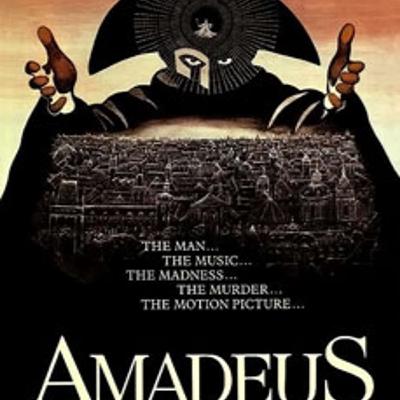
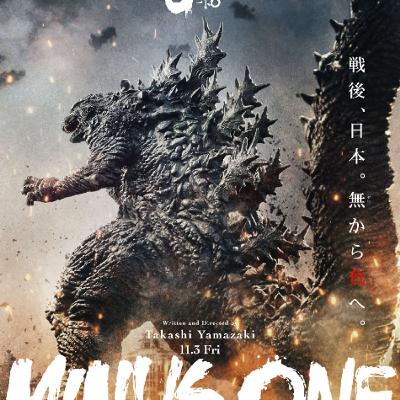
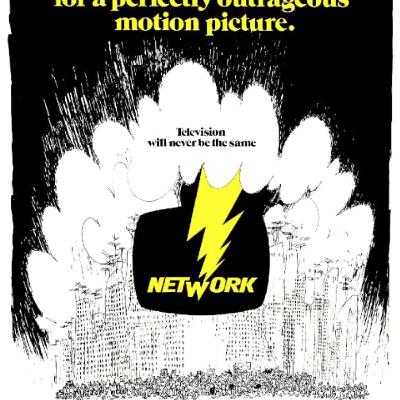
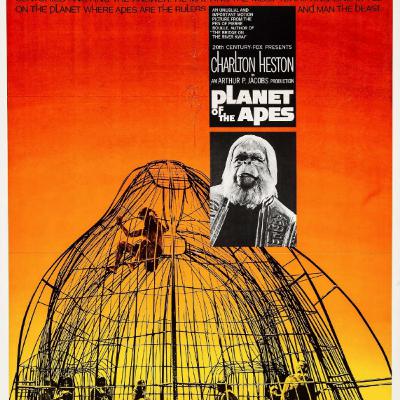

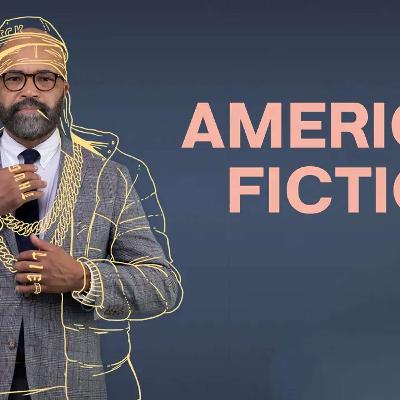
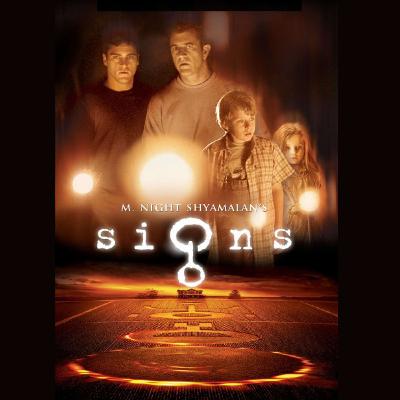




This is a great film except for the promotion of divorce in it. The theme of disability was very well done.